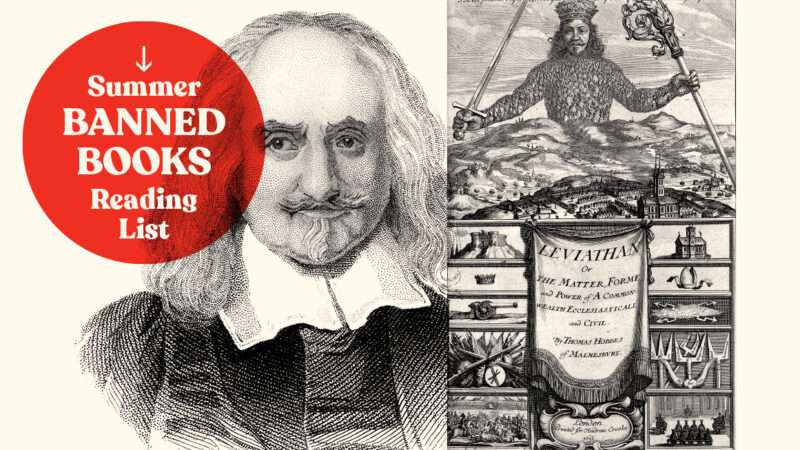
The Index Librorum Prohibitorum was a running list of books deemed heretical, blasphemous, or otherwise morally dangerous by the Roman Catholic Church. First published in the 16th century, the Index was ostensibly a response to the Reformation, but its scope went far beyond Protestant theology. More than 4,000 titles would eventually appear on the list, including such literary classics as John Milton's Paradise Lost and Victor Hugo's The Hunchback of Notre-Dame; scientific works by Nicolaus Copernicus and Charles Darwin; even The History of the Decline and Fall of the Roman Empire.
Political philosophy, too, sometimes made the ignominious cut: The complete works of Thomas Hobbes were added in 1649. Besides containing explicit attacks on various teachings and practices of "the Church of Rome," his Leviathan was a challenge to the governing independence of the Holy See. By defending an absolute (civil) sovereign with power to decide even religious matters, Hobbes ran up against the Church's insistence that it alone was Christendom's spiritual authority.
The Holy See did not merely warn Catholics about doctrinally objectionable content, a service an ecclesiastical body might reasonably be expected to perform. For hundreds of years, with full force of canon law, it prohibited believers from reading or possessing works on the list, punishable by excommunication. (This is not to say the rule was always strictly enforced.)
The fact that Hobbes' works were among those banned points to the problem of such a heavy-handed approach. Today, high school students in the United States and elsewhere study Leviathan alongside John Locke's Two Treatises of Government (which was not listed on the Index, though other Locke works were). It would be difficult to understand the origins of liberal democracy without a view of the social contract theory that so influenced America's Founding Fathers. To prohibit Catholics from engaging with the intellectual history that underpins the modern social order would be a true civic loss.
Happily, Pope Paul VI discontinued the Index in 1966. The Holy See still exhorts faithful Catholics "to be on their guard against written materials that can put faith and good conduct in danger," and the Church may still "reprove" works it considers heretical. But the list and its canonical penalties are no more.
The post Hobbes' <em>Leviathan</em> and Thousands of Others Were Off-Limits to Catholics appeared first on Reason.com.







